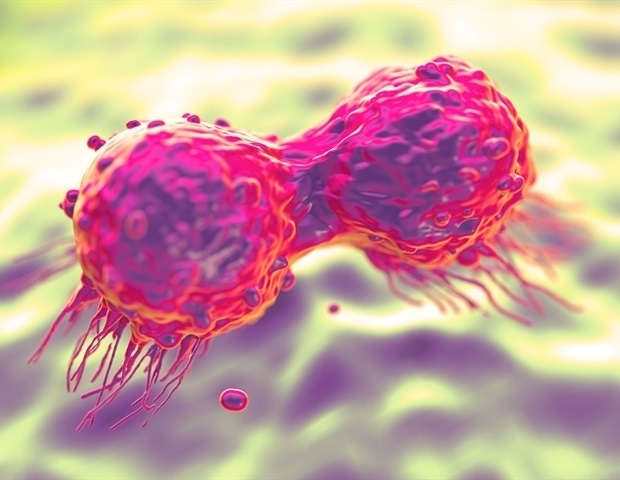
The devastating information of a most cancers prognosis understandably makes medical doctors and sufferers deal with the most cancers itself. Nevertheless, specialists in cardio-oncology from the European Society of Cardiology (ESC) emphasize that coronary heart and cardiovascular well being should be included as early as attainable within the affected person’s most cancers therapy plan to make sure the absolute best outcomes.
Because of an getting old inhabitants, and a rising variety of most cancers diagnoses there’s additionally an growing variety of sufferers with cardiovascular uncomfortable side effects of most cancers therapy. To sort out this rising downside, the ESC is launching a brand new convention on cardio-oncology to particularly goal this more and more vital space that overlaps most cancers therapy and its related heart problems (CVD) uncomfortable side effects. ESC Cardio-Oncology 2025 will happen in Florence, Italy, from Friday, 20 June – Saturday, 21 June 2025.
Earlier analysis from potential registries revealed within the European Coronary heart Journal estimate that roughly one-third (32%) of sufferers expertise gentle toxicities that might probably progress in severity with out satisfactory monitoring, whereas 3% develop reasonable toxicity and an additional 3% probably the most extreme toxicity.
The primary purpose of this rising specialty of cardio-oncology is to scale back the burden of CVD in most cancers sufferers permitting them to obtain one of the best anticancer remedy (chemotherapy, focused molecular therapies, hormone remedy, immunotherapy or radiotherapy) with the bottom price of uncomfortable side effects and therapy interruptions.“
Dr. Teresa López-Fernandez, College Hospital La Paz – Madrid, Spain and co-Chair of the ESC Cardio-Oncology Pointers Process Power
“We might quickly be going through cardio-oncology ‘epidemic’ attributable to both the rising inhabitants of most cancers survivors, the growing variety of sufferers aged over 65 who want persistent most cancers remedy, and the excessive frequency of most cancers remedy induced CVDs in these populations,” says Dr Alexander Lyon, Royal Brompton Hospital, London, UK, and likewise co-Chair of the ESC Cardio-Oncology Pointers Process Power.
Considerations concerning the growing prevalence of cardiotoxicity brought on by most cancers therapies led to the ESC establishing, in 2018, the Council of Cardio-Oncology as a multidisciplinary constituent physique which inspires the prevention, early prognosis and administration of most cancers therapy-related CVD. At present, the council brings collectively over 2,000 members worldwide and a staff of volunteers a part of the Council of Cardio-Oncology Board.
In 2022, the Pointers Taskforce, led by Drs López-Fernandez and Lyon, revealed the primary ever ESC Scientific Follow Pointers on cardio-oncology . These pointers embody recommendation on find out how to conduct an evaluation of cardiovascular toxicity threat, in collaboration with the cardio-oncology staff, utilizing particular threat scores; the implementation of preventive methods in high-risk sufferers; and evaluation of strategies to watch most cancers therapies with superior cardiac imaging strategies (together with MRI and pressure) and biomarkers.
In addition they embody strategies of early administration of potential cardiac toxicities, aiming to take care of most cancers therapy at any time when cardiac toxicity is manageable, and the affected person stays secure; and likewise, recommendation on finishing up long-term follow-up of most cancers survivors who’ve acquired therapies with potential late cardiovascular results.
“Cardio-oncology groups design efficient ‘shields’ to guard the hearts of oncology sufferers,” says Dr López-Fernandez. “The teamwork between cardiologists and most cancers specialists promotes the prevention of cardiovascular illnesses in most cancers survivors.”
The Pointers present extremely detailed explanations of most cancers therapy-related CV toxicity (CTR-CVT), and varied examples of this together with cardiac dysfunction, arrhythmias, hypertension (arterial and pulmonary), thrombosis. If cardiac dysfunction is detected, cardiology and oncology groups are strongly really helpful to debate the professionals and cons of constant versus stopping most cancers therapy. Dr Lyon feedback: “Our mission is at all times to make sure that most cancers sufferers have one of the best and only most cancers therapy safely, and to forestall interruptions of their most cancers therapy attributable to cardiovascular issues which might have been prevented.”
Populations needing particular issues, together with kids and adolescents and pregnant ladies with most cancers, are additionally all addressed within the Pointers. “As the worldwide inhabitants grows older, we are going to see an increasing number of folks with most cancers and thus an increasing number of with poisonous CVD side-effects of most cancers therapy,” says Dr López-Fernandez. Dr Lyon provides: “This specialised space of medication is one that’s solely going to develop, and as such we and different specialists on the European Society of Cardiology imagine the time has come to have a world discussion board, within the type of our first ever ESC Cardio-Oncology convention, to assemble international specialists to make sure higher outcomes for this rising affected person group.”
And for instance of the Council’s dedication to advancing the sector, they’re at the moment collaborating within the RESILIENCE Trial, an EU-funded randomised managed trial targeted on exploring novel methods to forestall anthracycline cardiotoxicity. At ESC Cardio-Oncology 2025 , the council will host a devoted session with the RESILIENCE staff.
Supply:

